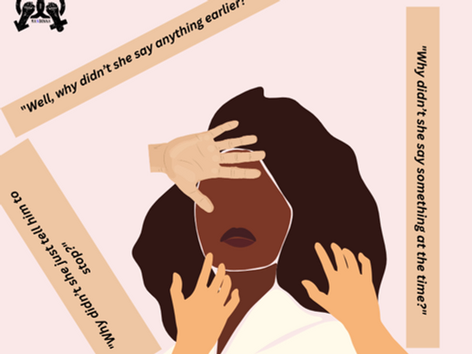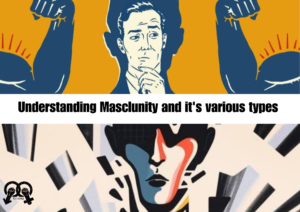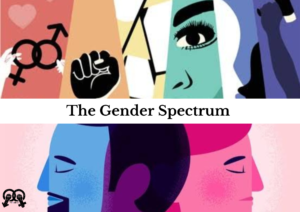Learning Outcomes:
- To gain a deeper insight into why women refrain from voicing their grievances related to sexual harassment and abuse
- To understand what are the systemic and psychological impediments that stop women from speaking out against sexual abuse
- Using this layered understanding to create a more enabling and empathetic environment for women to vocalise their suffering
"Why didn't she speak up earlier?"

- “Well, why didn’t she say anything earlier?”
- “Why didn’t she say something at the time?”
- “Why didn’t she just tell him to stop?”
Psychological Impediments

Complex Power Structures
Socio-economic factors
Systemic Apathy
Since the society we live in is patriarchal, the systems arising from it (both legal and professional) are also alarmingly apathetic towards women and their grievances. Police and judiciary in almost all countries is insensitive and crude in their behaviour towards sexual assault survivors. Women are faced with hostile executives who refuse to believe them or register their complaints. Tannushree Datta, the actress who became the harbinger of the #MeToo movement in the Indian entertainment industry, highlighted how her sexual harassment complaint against her co-star Nana Patekar wasn’t registered by the police officers. Similar hindrances are faced by other women in the entertainment industry, as they are stereotyped as “sexually promiscuous” or “available”
THE WAY FORWARD: Solutions and Suggestions

References
Blair, Elizabeth. “Women Are Speaking up about Harassment and Abuse, but Why Now?” NPR, October 27, 2017. https://www.npr.org/2017/10/27/560231232/women-are-speaking-up-about-harassment-and-abuse-but-why-now.
Engel, Beverly. “Why so Many Women Don’t Report Sexual Harassment and Assault.” Psych Central, February 23, 2018. https://psychcentral.com/blog/why-so-many-women-dont-report-sexual-harassment-and-assault#1.
Ilo, Ihuoma. “SGBV: Culture of Silence or the Justice System? Why Women Are Reluctant to Speak Up.” HumAngle, December 2, 2021. https://humanglemedia.com/sgbv-culture-of-silence-or-the-justice-system-why-women-are-reluctant-to-speak-up/.
Patel, Mona. “Council Post: Workplace Harassment: Why Women Don’t Speak Up.” Forbes, October 30, 2018. https://www.forbes.com/sites/yec/2018/10/30/workplace-harassment-why-women-dont-speak-up/?sh=36d84d34b378.
Rajendran, Sowmya. “‘Why Didn’t She Speak up Then?’: 8 Questions on the ‘me Too’ Movement Answered.” The News Minute, October 10, 2018. https://www.thenewsminute.com/article/why-didn-t-she-speak-then-8-questions-me-too-movement-answered-89742.
Sengar, Shweta. “To Everyone Who Asks, ‘Why Don’t Women Speak up Sooner about Sexual Harassment?’” Indiatimes, October 9, 2018. https://www-indiatimes-com.cdn.ampproject.org/v/s/www.indiatimes.com/amp/news/india/to-everyone-who-asks-why-don-t-women-speak-up-sooner-about-sexual-harassment-354471.html?amp_gsa=1&_js_v=a9&usqp=mq331AQIUAKwASCAAgM%3D#amp_tf=From%20%251%24s&aoh=16862566408209&referrer=https%3A%2F%2Fwww.google.com&share=https%3A%2F%2Fwww.indiatimes.com%2Fnews%2Findia%2Fto-everyone-who-asks-why-don-t-women-speak-up-sooner-about-sexual-harassment-354471.html.





